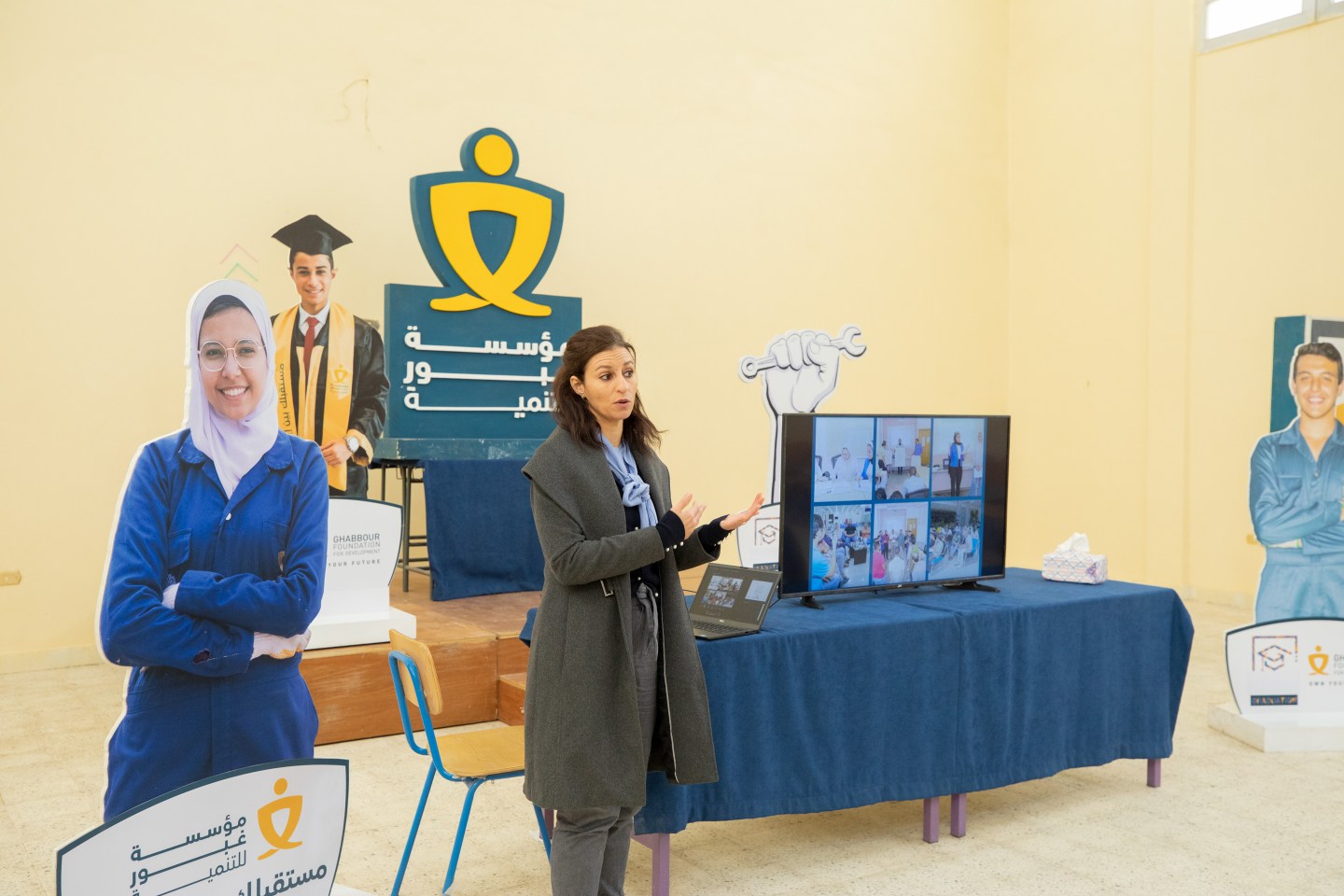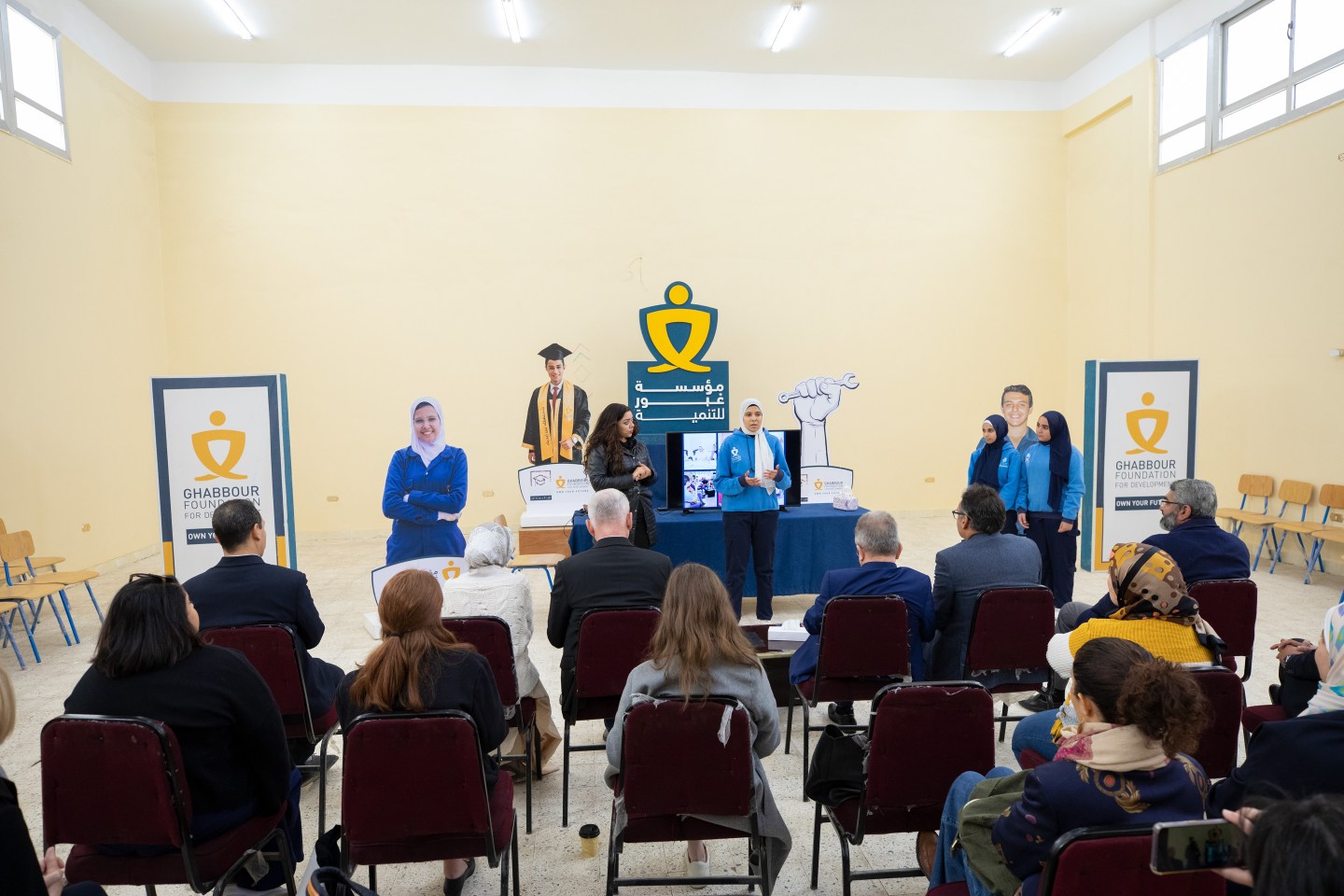Good morning, Broadsheet readers! Instacart is positioned for an IPO, Rihanna is bringing back a collaboration with Puma, and a nonprofit leader is determined to turn vocational education from a backup plan to a first choice. Happy Thursday!
– In the driver’s seat. In the Egyptian education system, students must choose in the eighth grade whether to continue with academics or switch to a vocational path. For many, vocational education is seen as the lesser option.
But Aleya Serageldin is determined to turn vocational trades from a backup plan to a proactive first choice. “We’re trying to counter the perception that vocational students aren’t winners and they’re here because they can’t do something else,” she says. Serageldin is the executive director of the Ghabbour Foundation, a nonprofit launched in 2017 by the Egyptian auto company Ghabbour. At the foundation, she oversees a network of vocational schools that prepare teens for careers in the auto industry.

Serageldin is one of 366 women from 58 countries who have participated in a Fortune program called the Fortune-U.S. Department of State Global Women’s Mentoring Partnership. Since 2006, mid-career women from around the world have come to the U.S. to advance their business skills and learn from female executives who are part of Fortune’s Most Powerful Women community. In 2022, Serageldin was a mentee of former Northrop Grumman corporate vice president Mary Petryszyn.
Since then, Serageldin has applied some of the lessons she learned about marketing, communications, and more to her foundation. I was lucky enough to visit one of the Ghabbour Foundation’s schools on a recent trip to Cairo with alumnae of the Fortune-State Department program, which is run in partnership with the nonprofit Vital Voices.
I heard from teachers and students who are redefining vocational education. Rather than simply learn the basics of auto technician jobs, students continue language classes in English and German to prepare them to work for multinational corporations. They participate in art therapy and learn about entrepreneurship. Students, who enter the school at 14 or 15 years old, go on to work as technicians in auto shops, launch their own businesses, or pursue higher education at technical universities and engineering schools.
Of the schools’ 830 students, 120 are girls. The schools, founded in 2017, only admitted girls in 2021; its leaders were reluctant to accept female students until they knew they could find them jobs. School leaders spent four years convincing the employers of the Egyptian auto industry that girls and women would be an asset to their traditionally male-dominated workplaces.

One 16-year-old student named Malak told us how she’s loved cars since she was young, but her mother was initially resistant to the idea of her pursuing an automotive education. An 18-year-old student, who trained in an auto shop, said customers would sometimes ask confused questions when they saw her in her coveralls.
With the first class of female students set to graduate in 2024, the Egyptian auto industry will soon have a more diverse—and well-trained—workforce. “They’re here because they excel at something,” Serageldin says of her students, “not because they lack skills at something else.”
Emma Hinchliffe
emma.hinchliffe@fortune.com
@_emmahinchliffe
The Broadsheet is Fortune’s newsletter for and about the world’s most powerful women. Today’s edition was curated by Kinsey Crowley. Subscribe here.
ALSO IN THE HEADLINES
- Ready to go. Instacart, led by CEO Fidji Simo, reported greater sales and profit in Q4 of last year. One of the highest-valued private U.S. startups, the grocery delivery service confidentially filed for an IPO with the Securities and Exchange Commission last year but is waiting for markets to improve to go public. Wall Street Journal
- Knock, knock. Elizabeth Hamren, a former exec from Microsoft and Meta, will replace the CEO of Amazon subsidiary Ring. Former CEO Jamie Siminoff invented the internet-connected doorbell and is bringing in Hamren because she shares his perspective that the device is meant to make neighborhoods feel safer, despite criticism that the doorbell is a form of surveillance. Bloomberg
- Global interest. Banco Santander SA Chairman Ana Botin promised to return half of the company's profit to investors, sending the share price up on Tuesday. The largest bank in Spain is still trading at a discount compared to the competition, but rising interest rates across the globe are helping boost profits. Bloomberg
MOVERS AND SHAKERS: Venus Williams is now an operating partner at private equity firm Topspin Consumer Partners. Laela Sturdy is now the head of Alphabet's growth-stage venture arm, CapitalG. Small business accounting platform Xero appointed Diya Jolly as the new chief product officer. Laura Butler has joined Armoire as chief technology officer.
IN CASE YOU MISSED IT
- Medicare upsells. Sen. Elizabeth Warren (D-Mass.) released a report that showed 32 insurance companies providing Medigap coverage offered financial incentives to brokers who upsell plans to beneficiaries. While these incentives are not illegal, Warren called for state and federal regulation to ensure "seniors aren’t getting fleeced." New York Times
- Open-to-the-world-A.I. The work of OpenAI chief technology officer Mira Murati is at the center of ethical debates over the company's industry-changing capabilities. Murati first got hooked on A.I. while working on technological innovation at Tesla and thinks that powerful technology like ChapGPT should be released to the public sooner rather than later to test its real-world applications. Fast Company
- 'She's back.' Rihanna announced that Fenty's collaboration with Puma is back after a five-year hiatus. She returns to the partnership with the experience of being the first Black woman to launch a luxury apparel line with LVMH, though the brand closed down two years later. Vogue
- Estonia in the balance. Estonian Prime Minister Kaja Kallas, one of Ukraine's fiercest EU allies, is up for reelection this weekend. Her center-right party could win at the polls but still fall short of maintaining a majority government, an outcome that could threaten Estonia's hardline stance against Russia. Politico
ON MY RADAR
Jill Biden went to Africa, and all anyone wants to talk about is 2024 Washington Post
Why do so many Black women keep working with Chris Brown? Refinery29
Ali Wong gets dramatic The Hollywood Reporter
Inside the New York Times blowup over transgender coverage Vanity Fair
PARTING WORDS
"I wanted to go out with a bang."
—17-year-old Katrina Kohel, who performed at her state cheerleading competition alone after her teammates quit.
This is the web version of The Broadsheet, a daily newsletter for and about the world’s most powerful women. Sign up to get it delivered free to your inbox.













